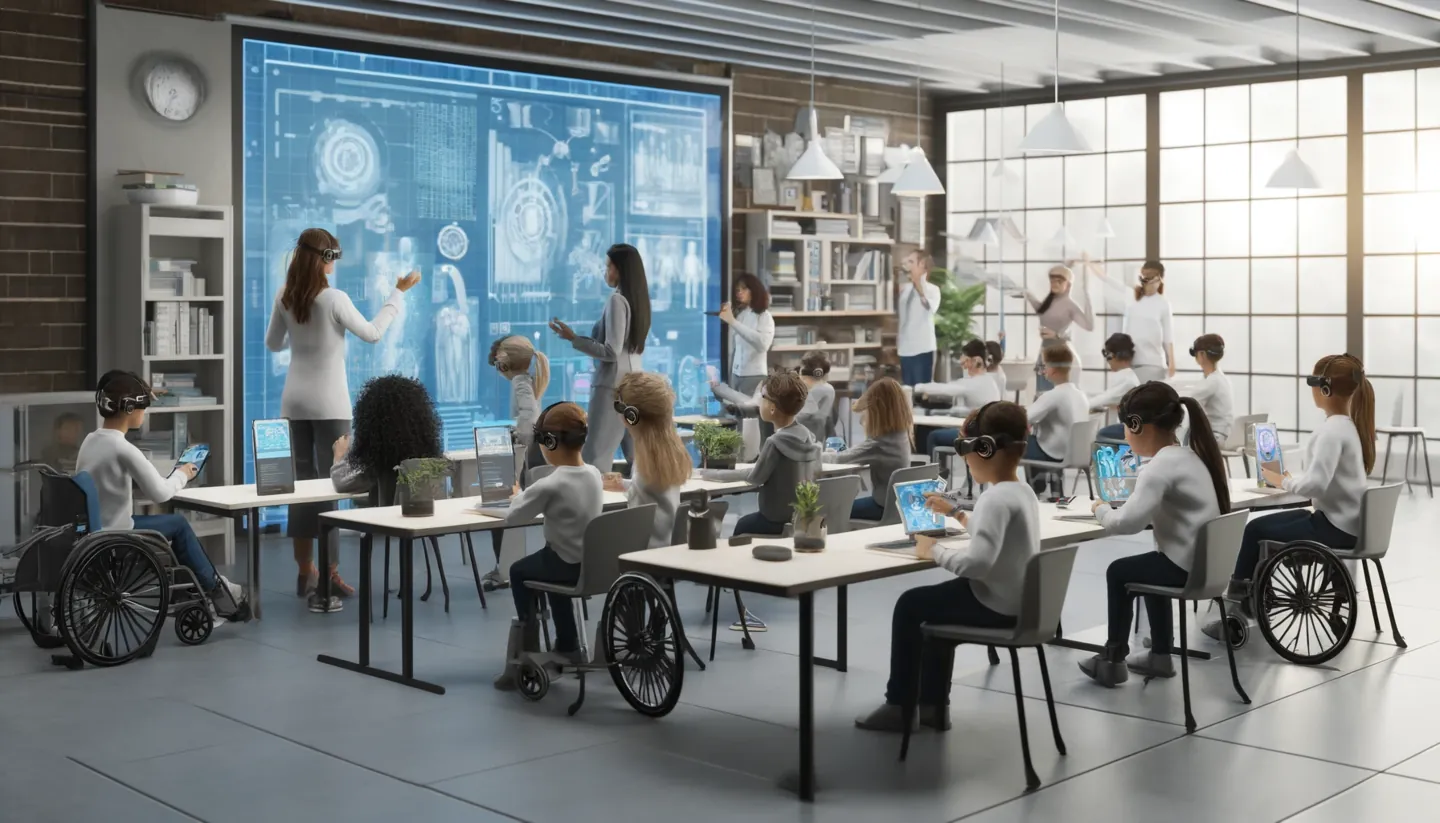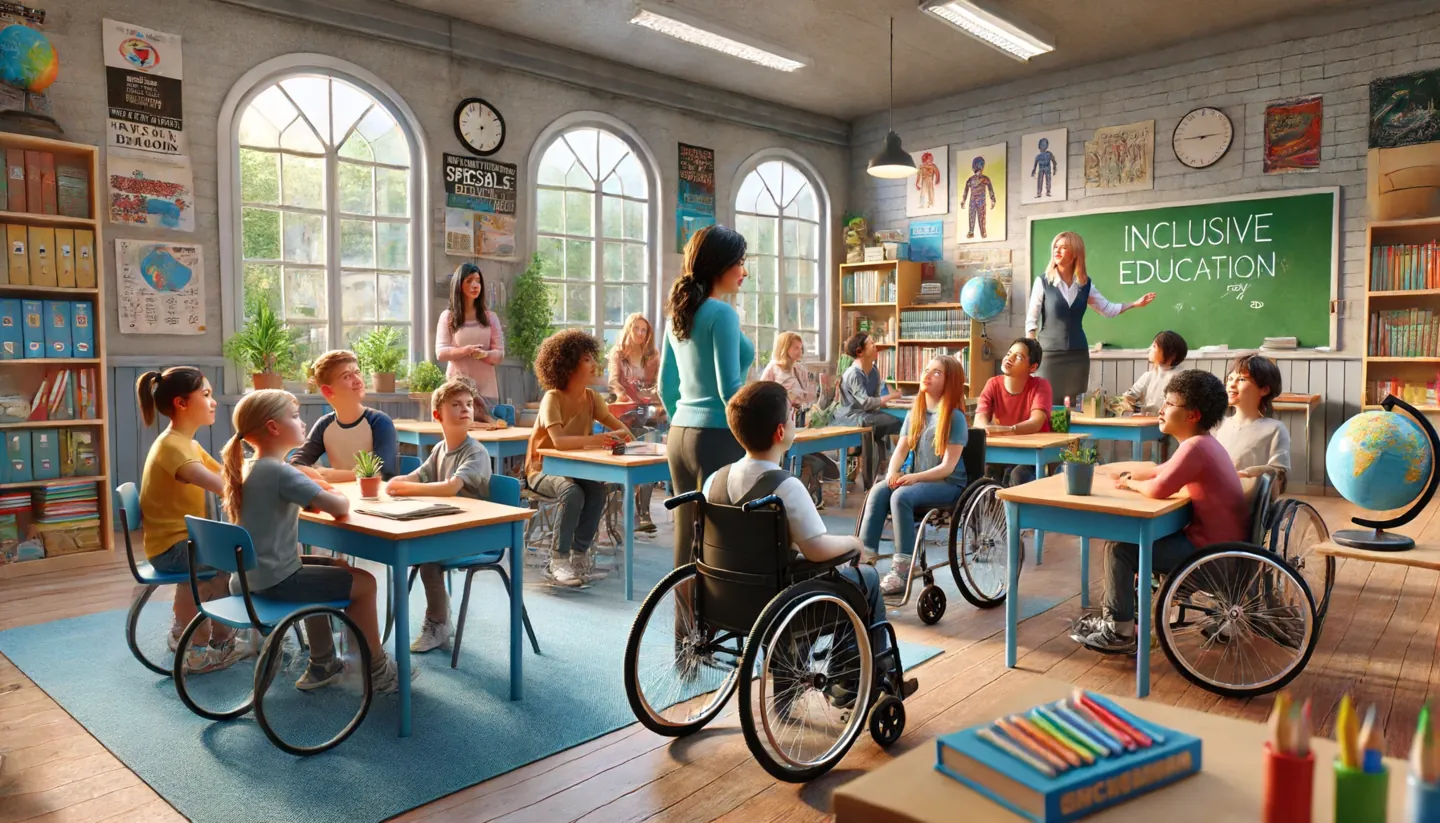Inclusive education is a pivotal and widely debated aspect of today's educational frameworks. Its purpose is to provide equal learning opportunities to all children, regardless of their physical, cognitive, social, or emotional characteristics. The implementation of this concept has encountered both significant successes and serious challenges.
What is Inclusive Education

Inclusive education is an instructional system designed to fully integrate every student into the mainstream educational process, accommodating physical, mental, social, and other individual differences. The fundamental goal of inclusive education is to ensure that every child can receive an education alongside their peers within a standard school environment.
Principles of Inclusive Education
- Equality of Opportunities: Each student must have equal access to educational resources and programs.
- Respect for Diversity: Schools recognize and value the differences among students, viewing these differences as enriching to the educational process.
- Individualized Approach: Educational programs and teaching methods are adapted to meet the unique educational needs of each child.
- Support: Schools provide the necessary support to students and their families to foster successful learning.
Challenges and Prospects
Despite notable advancements in inclusive education, the system faces challenges such as a shortage of qualified professionals, resistance to change within the educational community, and societal stereotypes. However, the continuous development of inclusive practices and increased government support can create conditions for more successful integration of all children into public life and the educational system.
Challenges in Inclusive Education

Inclusive education aims to ensure equal educational opportunities for all children, including those with special educational needs. This system strives to establish an accessible and welcoming learning environment but faces several challenges that can hinder its effective implementation and operation.
Key Challenges in Inclusive Education
- Resource Shortage: Many educational institutions encounter a critical shortage of specialized resources, including qualified professionals, adaptive equipment, and educational materials, which limits their ability to tailor the educational process to meet the needs of all students.
- Professional Training of Teachers: Effective inclusive education requires that teachers possess specialized knowledge and skills. However, not all educational institutions provide adequate ongoing professional development in this area, resulting in teachers often being unprepared for working in an inclusive setting.
- Social Barriers: Prejudices and biases against individuals with disabilities are still strong in many societies. These biases can also manifest in school environments, hindering the full integration and socialization of children with special needs.
- Curriculum Adaptation: Modifying standard curricula to accommodate students with special needs is a complex task. It involves changes not only in content but also in teaching methods, which can be challenging without appropriate methodological and material resources.
- Parental Interaction: Effective inclusive education requires active participation and support from parents. Insufficient interaction between schools and families can lead to misunderstandings and reduce the effectiveness of the educational process.
- Student Assessment and Progress: Assessing the achievements of students in an inclusive setting presents another challenge, as standard assessment methods may not always be suitable or fair for children with special educational needs.
Future Prospects for Inclusive Education

- Technological Integration: The integration of new technologies, such as assistive technologies, screen reading programs, and educational apps, helps to further integrate students with special educational needs. These technologies can be customized to meet individual student needs, providing access to educational materials and resources.
- Professional Development of Teachers: A key aspect of advancing inclusive education is improving the qualifications of teachers and educators. Training and courses in inclusive education help educators better understand and effectively work with children with diverse educational needs.
- Creating a Supportive Environment: Schools are becoming more open and accessible to all children. This includes not only physical accessibility of facilities but also fostering an atmosphere of acceptance and support, where each student feels valued and included in the school community.
- Political and Legislative Support: The advancement of inclusive education requires active government support. The enactment of laws and regulations that govern inclusive education, along with ensuring sufficient funding, are crucial steps in supporting this direction.
- Collaboration with Parents and the Community: Engaging parents and the local community in the inclusive education process enhances understanding and support for inclusive practices. This also aids in tailoring the educational program to the real needs of children.
Conclusion

In conclusion, inclusive education not only facilitates the integration of students with special needs but also enriches the educational environment, making it more diverse and tolerant. Despite existing challenges, continual efforts to improve conditions and methods of teaching, supported by societal and governmental backing, can significantly enhance the prospects for inclusive education in the future.










